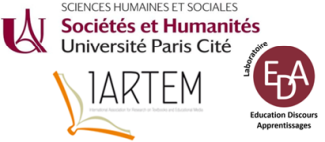Aims and Scopes
Arguments concerning declining reading and writing skills among school children are currently a focal point in Swedish educational policy change. These students are considered to be in need of support for their learning and with support measures being governed by national documents. Access to teaching content is then a key aspect to improve learning progress. Furthermore, a lack of access to high-quality Teaching and Learning Materials (TLM) - such as textbooks, digital resources and other educational media - has been identified as a key reason to the students' dropping capabilities in recent reports and government investigations. This has resulted in a policy debate, and have resulted in an ongoing policy change, where the meaning and intended practice of TLMs is undergoing rather drastic transformations in the educational landscape.
The decisions following from the governmental investigations and propositions on TLM is in its final stages and will likely be ratified during the summer of 2024. Consequently, this will lead to new preconditions for teachers work and children's learning, since TLM is at the heart of teaching and learning in the classrooms. To provide access to high- quality TLMs is an obligation to fulfill by both headmasters, teachers and school agencies in Sweden. Knowledge on how this responsibility works out, and will work out is however uncertain, as research about TLM in Sweden is commonly focused on content and design, rather than on a user-oriented perspective (Graeske 2021).
Responding to this, the aim of the study at hand is firstly to explore how quality and access is constituted in current TLM policy development, and secondly how this relates to how quality and access is constituted in schools governing documents on inclusive education. The study thus investigates how thoughts and ideas about TLMs are articulated in documents concerning the policy change and how these articulations relate to governing documents on inclusive education in Sweden, two important governing areas which both are supposed to enhance quality in and access to teaching materials.
Theoretical Underpinnings and Material
Drawing on the Anthropological Theory of Didactics (ATD), we understand the knowledge production within policy change as taking place within an ecology (Chevallard, 2006). We thereby pay attention to the logos part of the praxeology on TLMs, which means a focus on scholarly knowledge and the knowledge to be taught (Bosch & Gascón, 2006). The two parts of the ecology we focus on are the area of teaching materials and the area of inclusive education. Our stance on policy research is in line with what Diem et.al. (2019) describe as Critical Policy Analysis (CPA). We thus aim to analyze multiple levels including the constitution and change of the TLM policy as well as the distribution of power it results in (cf. Ball 1994). The analyzed materials consist of TLM policy documents, such as government investigations, referrals, referral responses and curricula, and school governing documents on inclusive education.
Novelty and implications
In sum, the current study displays the development of educational policy of TLM, and how that relates to inclusive education in Sweden. The results give insight into dominant knowledge constructs on TLMs and for whom they are intended. Preliminary findings reveal that there is a strong incentive to strengthening access to TLM. We conclude that there is ambivalence between parts in the ecology as there is agreement regarding the need to secure access, at the same time as structural and excluding aspects are prevalent. Implications are that inclusion risks being challenged, Intercultural aspects foreseen, and School segregation possibly enhanced.
References
Ball, S. J. (1994). Education reform: A critical and post-structural approach. Buckingham, UK: Open University Press.
Bosch & Gascón (2006). Twenty-five years of the didactic transposition. In ICMI Bulletin 58, 51–63.
Chevallard, Y. (2006). Steps towards a new epistemology in mathematics education. In M. Bosch (Ed.), Proceedings of the 4th CERME conference (pp. 21–30). Sant Feliu de Guíxols: CERME 4.
Diem, S., Young, M. D., & Sampson, C. (2019). Where Critical Policy Meets the Politics of Education: An Introduction. Educational Policy, 33(1), 3–15.
Graeske, C. (2021). Läromedelsbruk i skolan. En kunskapsöversikt – perspektiv och forskning. Dnr. Komm2021/00295/U2019:04–26.

 PDF version
PDF version
